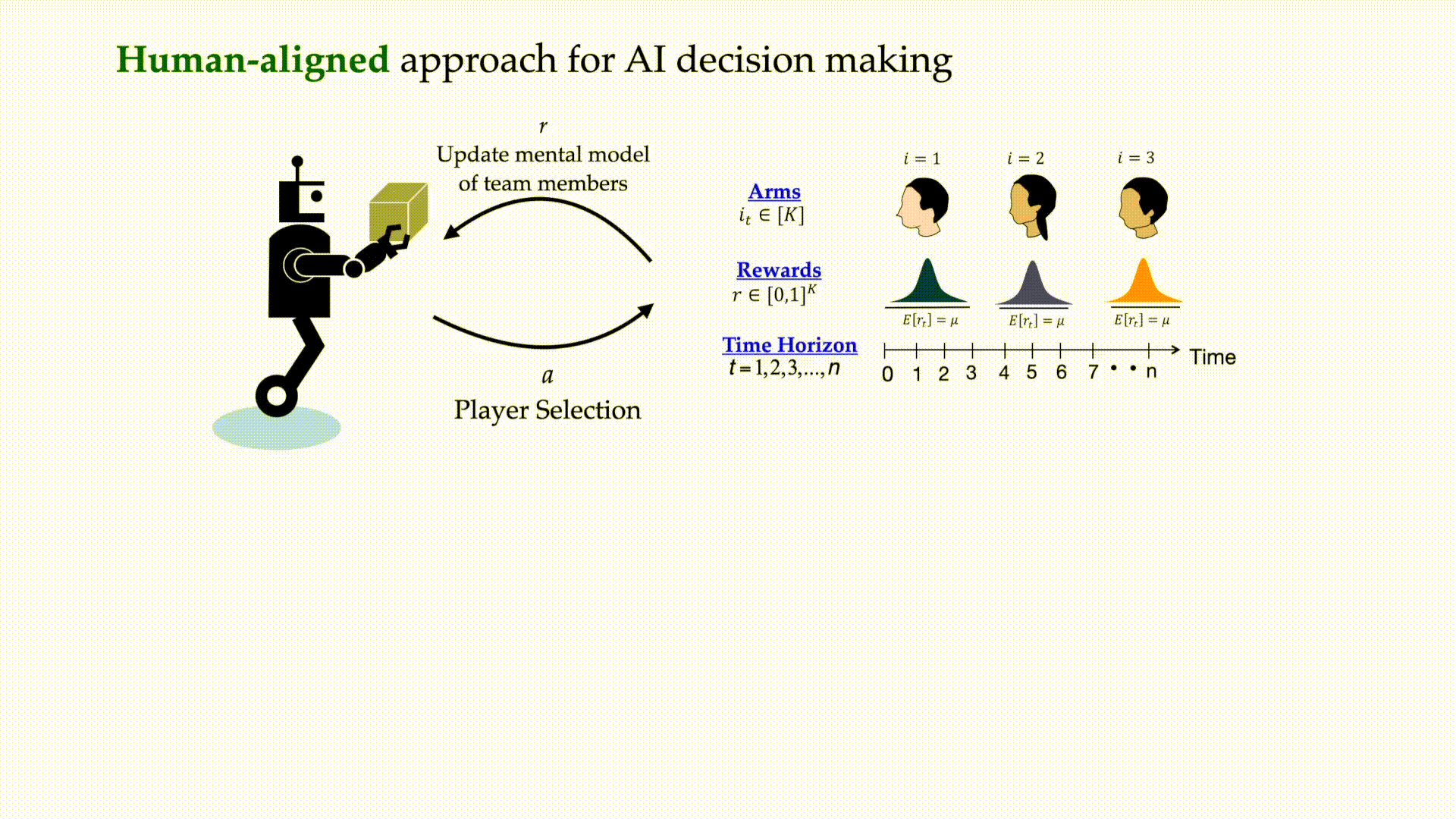Algorithms are beginning to shape court decisions, whom we hire, who gets approved for a loan, or who is admitted into college. Recognizing the importance and urgency to build understanding about the increasing influence that machines have over our lives as individuals and societies, my goal is to investigate how human behavior is shaped by these machines' decisions. In my research projects, I build platforms that recreate standard machine behaviors (e.g., distributing resources across a team of humans) and collect large-scale data on human behavior.
Co-Tetris: The Multiplayer Tetris Game. I designed this multiplayer game to explore the influence of AI algorithms on team performance and member perceptions through large-scale data collection.
Publications:
- Claure, H., Moosa, A., Vázquez, M. 2025. Inferring Human Fairness Judgments with Large Language Models in Human-Robot Interaction Scenarios. IEEE International Conference on Robot and Human Interactive Communication (RO-MAN)
- Claure, H., Shin,I., Trafton, G., Vázquez M. 2025. Did the Robot Really Intend to Harm Me? The Effect of Perceived Agency and Intention on Fairness Judgments. ACM/IEEE International Conference on Human-Robot Interaction (HRI).
- Shin,I., Claure, H., Trafton, G., Vázquez M. 2025. Effects of Time-Varying Perceived Agency on Fairness Judgments Towards Robot. IEEE Robotics and Automation Letters (RA-L).
- Claure, H., Candon, K., Clark, O.,Vázquez, M. 2024. Multiplayer Space Invaders: A Platform for Studying Evolving Fairness Perceptions in Human-Robot Interaction. Companion of the ACM/IEEE International Conference on Human-Robot Interaction (HRI). Submitted.
- Claure, H., Kim, S., Kizilcec, R., & Jung, M. 2023. The social consequences of machine allocation behavior: Fairness, interpersonal perceptions and performance. Computers in Human Behavior.
- Claure, H., Jung, M. 2021. Fairness Considerations for Enhanced Team Collaboration. Companion of the 2021 ACM/IEEE International Conference on Human-Robot Interaction (HRI)
- Jung, M. F., DiFranzo, D., Stoll, B., Shen, S., Lawrence, A., & Claure, H. 2021. Robot Assisted Tower Construction - A Resource Distribution Task to Study Human-Robot Collaboration and Interaction with Groups of People. ACM Transactions on Human-Robot Interaction.


